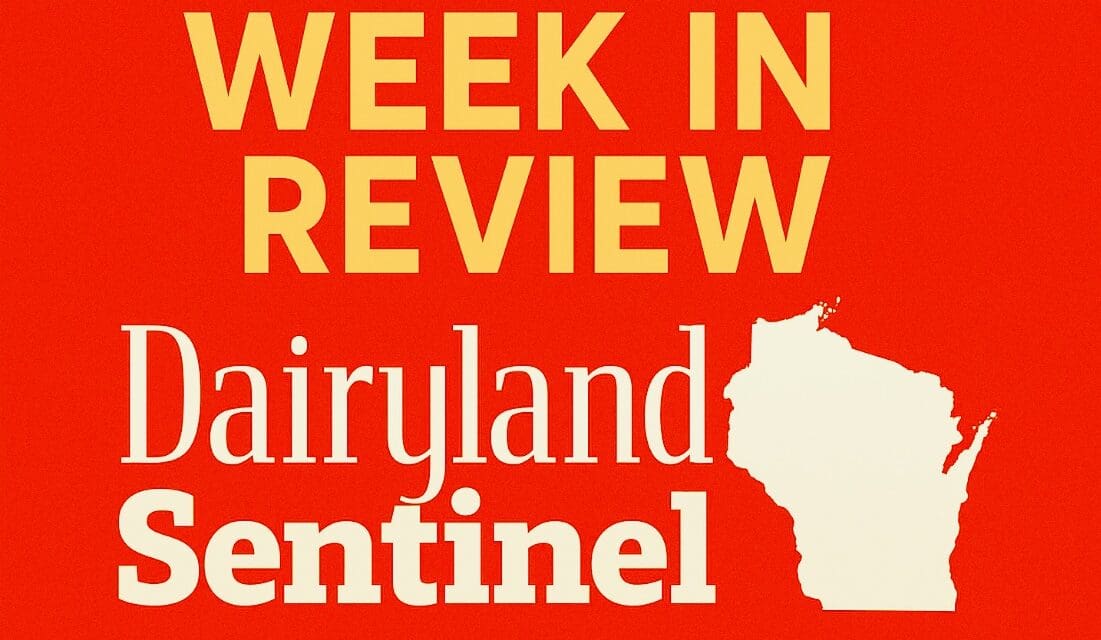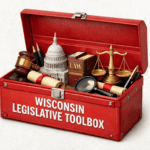This week in Wisconsin, a cascade of events underscored the state’s dynamic interplay of politics, community challenges, and cultural vibrancy, as reported by the Dairyland Sentinel. The week began with a jolt in Madison, where City Clerk Maribeth Witzel-Behl resigned amid controversy over 59 uncounted absentee ballots, sparking an investigation by the Wisconsin Elections Commission and raising questions about electoral trust (Madison city clerk resigns amid uncounted election ballots scrutiny | Cap Times). The electoral theme continued with a contentious Wisconsin Elections Commission meeting that erupted into a shouting match over absentee ballot rules, reflecting deep divisions in election administration (Wisconsin election officials’ meeting devolves into shouting match | Associated Press). Meanwhile, a poll revealed that abortion rights and anti-Trump sentiment drove votes in the recent Supreme Court race, signaling the enduring influence of social issues on Wisconsin’s judiciary (Poll: Abortion, Trump anger drove votes in Wisconsin Supreme Court race | Cap Times).
In Green Bay, anticipation for the 2025 NFL Draft grew, but so did concerns about its $2.5 million public safety price tag, with local officials pressing for state funding that Governor Tony Evers’ budget omits (Public safety costs for 2025 NFL Draft worry Green Bay area municipalities | FOX 11 News). The event’s economic promise was evident, with Airbnb listings near Lambeau Field still available, though booking fast (Airbnbs still available near Lambeau for NFL Draft | Wisconsin Public Radio), and excitement peaked with news that country star Brad Paisley will headline a free draft concert, set to draw thousands (Country Star Brad Paisley to Headline 2025 NFL Draft Concert in Green Bay | FOX 11 News). Milwaukee, too, celebrated its cultural icons, as the Admirals hockey team’s Bob Uecker tribute raised significant funds for charity, blending sports and community spirit (Milwaukee Admirals’ Bob Uecker tribute is a big win for charity | Milwaukee Journal Sentinel).
Economic transitions and challenges also marked the week. In Milwaukee, Molson Coors CEO Gavin Hattersley’s retirement announcement raised questions about the future of the company’s brewery operations, a cornerstone of the city’s economy (Molson Coors CEO Hattersley to Retire: What Does This Mean for Wisconsin? | Dairyland Sentinel). Meanwhile, Wisconsin farmers faced delays in fieldwork due to cool, wet weather, tightening the timeline for the growing season (Wisconsin too cool and wet for most fieldwork | Brownfield Ag News). On the environmental front, the U.S. Army Corps of Engineers’ expedited review of Enbridge’s Line 5 pipeline tunnel under the Great Lakes drew criticism from tribal groups and environmentalists, who demand a thorough impact study (Corps expedites environmental review for Enbridge Line 5 tunnel | Associated Press). Conversely, bipartisan support surged for the Knowles-Nelson Stewardship Program, bolstering Wisconsin’s conservation efforts (Knowles-Nelson Stewardship Program sees bipartisan support for Wisconsin conservation funding | Cap Times).
Legislative and social issues further shaped the week’s narrative. Eau Claire City Council President Andrew Werthmann announced his congressional bid for the 3rd District, setting the stage for a competitive 2026 race (Eau Claire’s council president files to run for Congress | News8000). In Madison, lawmakers proposed clearer wording for constitutional amendments to enhance voter understanding, a response to recent referenda confusion (Future Wisconsin constitutional amendments could be more decipherable | Cap Times). However, debates intensified over a proposed ban on basic income programs, with Assembly Democrats calling it “baseless and cruel” amid support for Milwaukee’s pilot (Assembly Democrats Claim Basic Income Ban “Baseless and Cruel” | MacIver Institute). Additionally, hearings to audit state DEI programs stirred controversy, with critics decrying them as attacks on progressive policies (Lawmakers Announce DEI Audit Hearings | MacIver Institute).
Education and public safety issues also surfaced. A reported rise in seclusion and restraint in Wisconsin classrooms—over 10,000 incidents in 2023-24—prompted calls for better training and policies (Seclusion, restraint increase in Wisconsin classrooms | Wisconsin Public Radio). In Waukesha County, District Attorney Susan Opper highlighted a prosecutor shortage straining the justice system, urging state action (Waukesha County DA calls out need for more prosecutors | Wisconsin Public Radio). In Milwaukee, tensions flared when Froedtert South hospital denied care to an armed police officer, prompting legislative backlash and threats of legal action from the Milwaukee Police Association, highlighting broader concerns about law enforcement access to healthcare (Legislators Back the Badge, Blast Froedtert After Reports of Denial of Care to Milwaukee Cop | Dairyland Sentinel; Milwaukee Police Union threatens charges after hospital turns away armed officer | TMJ4).
The week wasn’t without setbacks in sports, as Wisconsin Badgers freshman Kevin Heywood suffered a season-ending injury, challenging the football team’s 2025 preparations (Wisconsin football: Kevin Heywood injury news | Badgers Wire). On a brighter note, the Wisconsin Department of Natural Resources launched a user-friendly website for anglers, promoting sustainable fishing and enhancing outdoor recreation (DNR launches new website to offer complete guide for anglers | WSAW). Finally, a report on remote work by state employees sparked debate over its impact on taxpayers, weighing productivity gains against oversight concerns (Does remote work by state employees help or hurt Wisconsin taxpayers? | Cap Times).
As Wisconsin navigates these challenges and opportunities, the Dairyland Sentinel remains committed to delivering 5-7 Key Reads each weekday, via early morning email. Our subscribers stay informed on the state’s evolving landscape. On Point. On Time. On, Wisconsin.
Subscribe for free


















